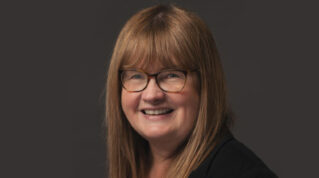A one-year cash boost is to be offered to colleges and providers set to lose £20,000 under changes to a maths premium aimed at encouraging take-up of the subject beyond the age of 16.
Changes to the advanced maths premium baseline being introduced for the 2023/24 academic year will mean some post-16 providers will not secure as much funding as they have in previous years.
But the Education and Skills Funding Agency in its weekly update has confirmed that those institutions that will lose £20,000 or more will be given additional temporary funding for one year only. The top-up will bring the premium funding up to the same amount they have received in the current year’s allocation, 2022/23.
The ESFA said that providers in scope have already been contacted directly, and will receive their amended allocation later in the summer.
The advanced maths premium is paid to colleges, sixth forms and other providers which deliver level 3 maths courses – AS levels, A-levels or core maths – encouraging them to deliver more maths provision.
The Department for Education in January announced its 16 to 19 funding allocations for 2023/24, which confirmed that the baseline average for the advanced maths premium will change.
To date, the baseline has been calculated as an average number of level 3 maths students in the 2015/16 and 2017/18 academic years, with payments made to providers at £600 per student above that figure.
But the baseline going forward will be an average of the 2019/20 and 2020/21 academic years. It means the baseline will be higher because some growth had already been seen in the years between the old baseline and the new, which now leaves some providers below the threshold for premium funding or receiving less than in previous years.
The ESFA announcement said the one-year additional funding is to help providers maintain their levels of advanced maths participation, adding: “This one year of temporary funding is being provided while we look at how best to achieve the government’s ambitious goals for growing participation in maths, including options for funding in 2024 to 2025 and beyond.”
The Sixth Form Colleges Association said the one-year settlement was a “welcome intervention” by the ESFA.
Deputy chief executive James Kewin said: “The advanced maths premium has helped to fund the growth of students studying maths in some of our colleges, and without this change, institutions that have seen the biggest growth in numbers would have seen the biggest reduction in funding.
“That would have been difficult to square with the government’s ambition to boost the number of students that study maths. The next task is to develop a sustainable funding model beyond 2023/24, but this one year fix will buys us some much-needed time.”
In January, the Association of Colleges warned that the funding model was not going where it needed to.
Its analysis found that of the £56.7 million premium paid out in the last four years, 86 per cent had gone to schools and just 14 per cent paid to colleges, despite around 25 per cent of level 3 maths entries coming from colleges.
The analysis found that providers which delivered consistently high numbers of students on level 3 maths courses were not being rewarded as the model rewarded growth from lower starting numbers in the years the baseline figure was based on.
Eddie Playfair, the AoC’s senior policy manager, said a model based on volumes would be a better fit.
Some of the biggest winners in premium funding told FE Week in January that it had actually allowed them to introduce core maths.
On the 2023/24 arrangements, Playfair said: “The change means that some of the unfairness of this type of funding has now been removed as it is not funding past growth several years after it took place. There is still the unfairness of funding growth rather than volumes
“However, I think it’s difficult to double guess how this change will affect provider behaviours in future. I’m not sure that it will make much difference one way or the other.”
Last summer’s exams entry indicated there were more than 89,000 A-level maths entries, while 12,311 core maths entries were recorded in 2022 – the highest number since its inception in 2016.
The ESFA announcement comes just days after the prime minister reaffirmed his plans for maths to be studied up to the age of 18, announcing the creation of an expert advisory group which will report back in the summer to help inform proposals.

















Your thoughts